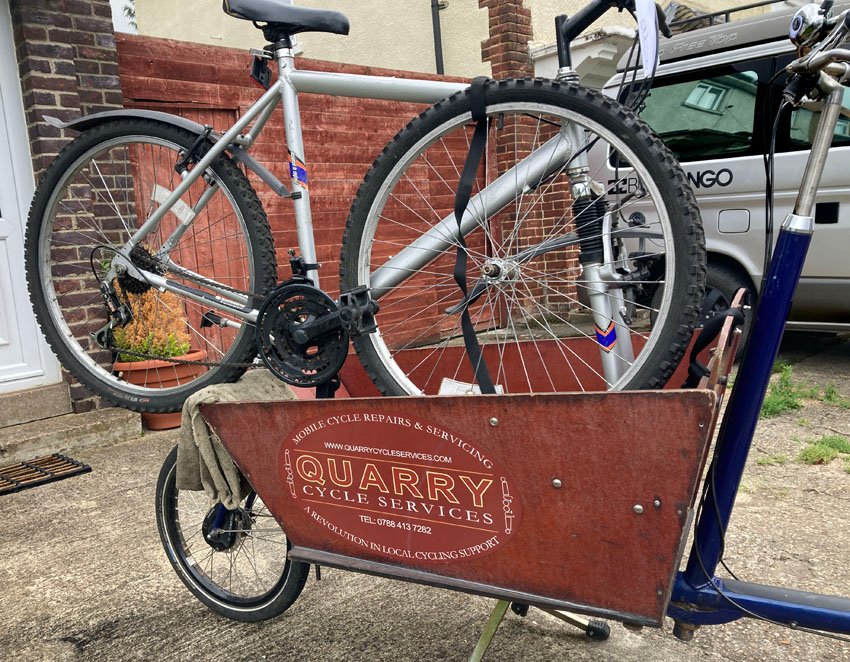Bikes are good for business
By Andy Chivers
We hear a lot about how closing roads to private motor vehicles will be bad for business. The assumptions are that nearly every form of work depends on vans or lorries to move people and equipment around, and that cars are the only form of personal mobility. But just look around Oxford and it is clear that cargo bikes are now providing an alternative form of carriage.
I was lucky enough to work as a GP in Oxford and was able to do my visits on a bike. I carried all the equipment I needed in panniers. And I was not alone. Perhaps half the GPs working in central Oxford found they could get to patients more quickly by bike than by car, and without the hassle of finding a parking place when they got there.
Journey times by bike are remarkably predictable which makes planning your day easier and you can use pleasant routes such as the canal towpath.
Clearly this is not for all professions and trades, but the opportunities may be greater than we assume. District nurses and midwives used to be seen on bikes until the 1960s, and window cleaners performed the impossible by cycling with a ladder on their shoulder. Posties were a familiar sight on bicycles.
Changing attitudes

The climate crisis and traffic congestion are changing attitudes and traders are beginning to think again about the benefits of pedal power (with a little bit of e-assist). Now the huge hike in fuel prices is making it all the more likely that some trades will go back to using cycles for at least some of their tasks. Already greengrocers and sandwich shops are using cargo-bike deliveries. Oxwash, Pedal & Post and Velocity delivery bikes can be seen all around Oxford. With electric assistance these bikes can carry 100 kg or more. The university postal system is run very efficiently on a few post bikes. There are some cycling gardeners in the city and, not surprisingly, people doing mobile cycle repair.
In the last few decades smaller local food shops have been replaced by out-of-town supermarkets designed to be reached by car. This has created a lifestyle in which we drive to the shop and buy large amounts on fewer occasions. But even this type of shopping can be managed with a bike and a trailer – or a cargo bike. I do all my household shopping with bike and trailer.
Rethinking priorities
Then we come to a problem of where to keep your bike. It is an accepted right of car owners to be able to leave their cars on the highway when they are not needed (which is about 95% of the time). Owners of bicycles, bike trailers, cargo bikes and e-bikes deserve the same facility. Covered secure bike storage should be a reasonable expectation of every resident of Oxford – and the lack of it is hard to defend in equity terms. Many people who can’t afford a car may benefit from the mobility of a bike.
I would ask everyone whose journeys involve a car to think about what the alternative might be and what changes this might mean to their daily routines, our public services, our social interactions, our built environment.
At present there is no practical alternative for some, but those of us lucky enough to live in Oxford could consider alternatives to owning a car. It is wonderful to see the profusion of Co Wheels and other car club vehicles around the city which people can hire for an hour or a day as needed. And if you use these alternatives to car ownership you may be surprised how much you can do without owning a car.

One Response
[…] Cargo bikes can save a lot of money. There’s a plumber in Derby who estimated using an e-cargo bike has more than halved his travel costs, and Vaska says he’s spent just £70 on his bike in the last 12 months – which is less than a tank of fuel (although Vaska’s bike isn’t electric, and pedalling a full cargo bike up Morrell Avenue isn’t for everyone). […]